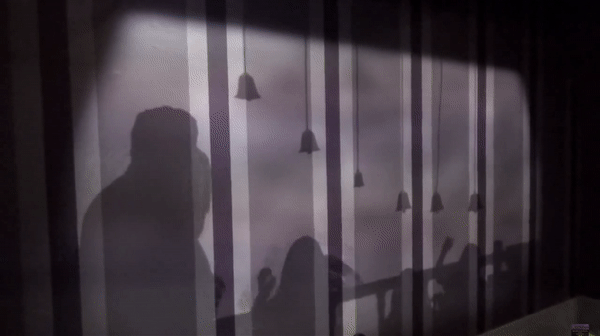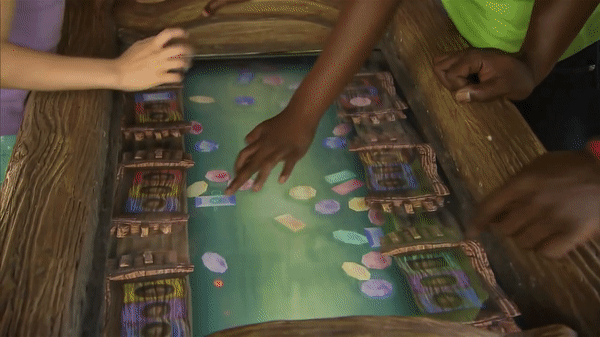
Summer 2019
To view the full case study, please view my portfolio via computer. Thanks!

Environment & App Design, Solo Passion Project
Inspired by the TRON universe, this interactive experience allows guests to interact with and customize their own avatar for the Grid.
the problem
One of the biggest issues with visiting a Disney park is the long lines. To combat these dampers on the day, Disney Imagineers have been implementing both digital and physical experiences in several lines throughout the parks.
While the current Shanghai Disneyland's TRON Lightcycle Run lacks an interactive queue, a new iteration being built at Magic Kingdom in Florida holds potential for a delightful and immersive queue experience.
right: interactive experiences found in the queues for Peter Pan’s Flight and for the Seven Dwarfs Mine Train


In the current TRON Lightcycle Run’s queue, guests start in the real world and pass through a hallway opening into the digital world of the Grid. From there, guests prepare themselves to go up against Programs in a high speed lightcycle race.

above: Disney made concept art for the exterior and interior of the TRON Lightcycle Run attraction
the solution
Building on the attraction’s story, this interactive experience scans guests into “the Grid” and gives them an avatar that mimics their own movements.

Within the hallway, guests are able to play with their avatars, and customize their look through an addition to the Disney Play Mobile App.

taking a step back
Making the most of a family trip to Disney World, I took notes, pictures, and screen shots of both the existing digital and physical queue experiences. Combining all these findings with a post trip survey, I made an affinity diagram which helped me hone in on what makes an effective queue experience

simple interactions with clear instructions
lots of hurry up and wait moments in the queue
imagineers want people engaged and social
Using the existing TRON Lightcycle Queue in Shanghai Disneyland, I found three prime spots for the experience. To ideate, I printed out several copies of the potential experience spots and drew the ideas on top. This allowed me to better understand scale, space, and flow.

above: Shanghai queue photos from blogmickey.com, sketches by me
the physical experience
To better visualize the queue, I mapped it out in my apartment using painter’s tape. This process helped me decide how wide the hallway needs to be for guests to interact with their avatar.

above: My apartment's living room as a stand in for the queue
Once guests enter the hallway, they are confronted with their avatar along the interactive wall. Alongside their avatars are a QR code that can be scanned for customization and keepsakes. Light patterns used along the walls and flooring double as a way to organize and direct guests onward.
above: panorama of the inside of the hallway, click on the image to explore
below: 3D model of the door and hallway, click the model to explore


the phone experience
While the phone experience is optional to guests, being able to customize one’s avatar allows for a more personal connection to the experience. As with all of my designs, the first step is to map out each step the guests go through.
Giving an outlet for sharing and remembering, guests can save premade photos of their avatar on the app, or guests can strike a pose with their avatar and save an image.

scan

customize

strike a pose
The home for this phone experience, the Play Disney application, has a history of large UI with simple copy to accommodate for a wide range in users while they play games and take quizzes in park queues.
right: Disney Play games for "Animal Expeditions" "Peter Pan's Flight" and "Space Mountain"

For the styling of my designs, I looked at both the 2010 film and the preexisting queue for inspiration. Making note of customization options, colors, and typography in the films, as well as the line patterns found in the Shanghai queue.

above: photos of the Shanghai queue from blogmickey.com
left: a film still from TRON: Legacy

lessons learned
Being the first in-person experience I’ve worked on, completing this challenge really helped me compare the differences between digital and physical design. The biggest difference being how users move and occupy space.
All told, completing this project helped to solidify my desire to continue to create holistic user experiences, blending the digital and physical to create immersive, inspiring worlds to inhabit.
end of line